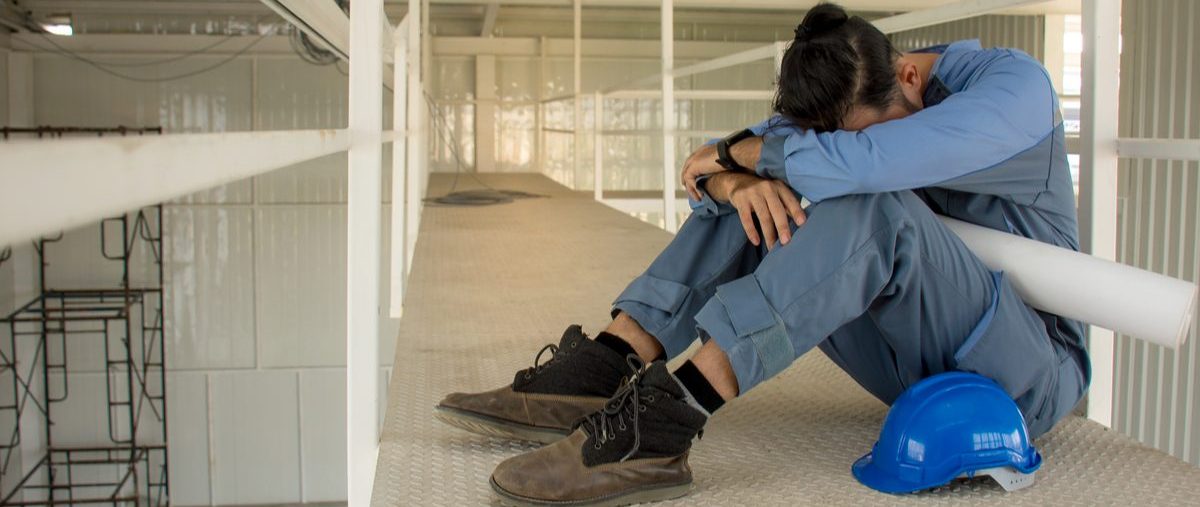Spanish-owned Pacadar wins HS2 tunnel lining deal
HS2’s London tunnels consortium, Skanska Costain Strabag, has signed the first of two contracts for the production of concrete precast tunnel segments on its stretch of the route.
The UK arm of Spanish group Pacadar will manufacture the tunnel lining at its factory on the Isle of Grain in Kent.
It will be the largest contract the precast specialist has ever delivered in the UK and will support 180 jobs.

The segments will be used in the first tunnel boring machine drives in London, when two giant machines will be launched in early 2022.
The production will begin in January next year at the factory and the materials will then be delivered to the launch site in West Ruislip by rail where the construction of the twin bored, 5-mile Northolt Tunnel West will begin.
Over 160,000m3 of concrete will be used to make the 7-tonne segments which form a 9.5m outside diameter tunnel 0.35m thick.

Each complete ring is made of seven segments and a key.
James Richardson, managing director of SCS JV, said:“This is an important milestone in the programme as we get closer to launching our first two tunnel boring machines next year.
We’re building 26 miles of twin bore tunnels, covering the 13 mile distance between West Ruislip and Euston, tunnelling up to 50 metres below ground.
Using rail to deliver all our segments required for our tunnelling programme will help us to remove one million lorry journeys from the road over the lifecycle of our programme.”


Did you miss our previous article…
https://www.arizonasolarsociety.com/?p=251
Profits set to hit £820m at Taylor Wimpey
Taylor Wimpey is on course to post an operating profit of £820m this year as the house builder delivered a record first half performance.
The firm completed 7,303 homes in the six months to July 4 2021 compared to 2,771 last year as pre-tax profit recovered to £287.5m from a £39.8m loss on revenue up to 2,196.3m from £754.6m.
Pete Redfern, Chief Executive,said: “We have delivered a record first half performance and a strong operating profit margin performance of 19.3%, which reflects tight cost discipline as well as higher completions in the period.

“Our focus remains on driving further improvement in our operating profit margin and accelerated outlet-driven volume growth from 2023.
“Backed by last year’s equity raise we stepped up our activity in the land market before competition returned and we successfully increased our land pipeline with high-quality sites that will deliver a strong financial performance.
“We are progressing this land through the planning stages as expected, providing excellent momentum for growth, enhanced returns for our stakeholders and increased numbers of new homes.

“We have a clear purpose to deliver high-quality homes and create thriving communities and a strategy to ensure the long term sustainability of the business.
“We now expect to deliver 2021 full year Group operating profit of c.£820 million, above the top end of consensus, with UK completions (excluding joint ventures) expected to be towards the upper end of our guidance range of 13,200 to 14,000.”
Taylor Wimpey is now targeting profit margins of 22% and added “looking further ahead, we have excellent momentum going into the medium term and are well positioned for accelerated volume growth from 2023.”

The firm has set aside £165m for fire safety cladding. It said: “Where we own the buildings, we are undertaking assessments on the buildings and where works are required, we are procuring those works. Where a third party owns the building and we have been contacted by the freeholder or management company we are engaging with them in relation to the assessment process.”
Taylor Wimpey said rising house prices were offsetting increases in materials.
It said: “Whilst there is pressure on pricing and supply chains for certain materials such as timber and steel owing to strong global demand, healthy increases in house prices are fully offsetting build cost inflation.

“Our central procurement team and logistics business continues to work closely with our supply chain to understand and track the origins of our components and subcomponents and stocking levels within the supply chain. This helps provide visibility of our materials supply, identifying and pre-empting potential bottlenecks.”


Did you miss our previous article…
https://www.arizonasolarsociety.com/?p=240
Mace wins green Mayfair office scheme
Mace has been appointed by property investor Astrea to deliver a major new office scheme at 38 Berkeley Square in London.
Located in the heart of Mayfair, the project will provide 85,000 sq ft of premium office space across nine stories with over 7,000 sq ft of communal terracing.
Toureen Group is understood to have secured the enabling and foundations package for the job, which is Mace’s first with Astrea.
Mace is working towards the highest sustainability standards for the project of BREEAM Outstanding, WELL Platinum and LEED Gold. The building will also achieve WiredScore Platinum.
Designed by architects Piercy & Company, the transformation of 38 Berkeley Square will involve using a mix of precast facades and Portland stone.

Completion is expected in the first quarter of 2024.
Ged Simmonds, Managing Director for Commercial Offices and Residential at Mace, said: “We are delighted to work on the transformation of 38 Berkeley Square, on behalf of Astrea.
“Our team will support the client’s vision for a destination office space with an innovative sustainability strategy, minimising carbon emissions during demolition and build.”
Did you miss our previous article…
https://www.arizonasolarsociety.com/?p=237
How to Go Solar – Do It Yourself and Save Money
There is an increased awareness these days about green technology. As the world faces energy problems, the demand for solar power equipment and services has grown tremendously. Solar energy is free and environmentally friendly. So why not seriously consider solar power as an option for your home?
Homeowners are now installing solar power systems, and the growing number of such installations indicates the increasing interest in energy conservation worldwide. There are three critical elements in a solar power setup: solar panels, solar power converters, and solar mount. All three can be installed by homeowners, however, for those who know a great deal about these energy-efficient devices, installation can be a little more complex. For those homeowners without a lot of experience with these devices, professional installation is advised. However, most experts would suggest residential customers that are up for the challenge to do the work themselves.
The panels or solar cells, as it is called, are used to collect the sun’s rays and convert them to electricity or gas. The number of solar cells required to produce sufficient energy will depend on the household electrical needs. Typically, each panel can hold enough energy for one or two standard-sized American houses.
The solar panels installed should be mounted on the roof, ideally at an angle so that maximum sunlight is received. A flat surface is preferred, but a slope can be used if desired. Mounting the panels is the first step in the process, followed by installation of the battery and the power inverter. Battery installation is important because the amount of energy needed to charge the battery depends on how much total energy is available during the day. Without the battery, the total cost of the system is going to be much higher.
In many areas, the cost of purchasing and installing a solar panel system may be covered in one or two payments. In some areas, the amount of money homeowners spend on the system will include the cost of batteries and other equipment. The number of months the system is expected to provide adequate energy is another factor that must be considered before making a purchase. The longer the system is expected to last, the more energy is needed to recharge the batteries. Most people are able to pay for the panels and batteries over the course of several years, with the balance paid back after the energy is used.
Installing the solar panel system may be required by local authorities. In addition, utility companies may need to approve the installation. Before a homeowner installs the system, he or she should be sure that there are no energy interruptions due to inclement weather, such as cloudy days or overcast skies. Also, the homeowner should make certain the system receives plenty of sunlight during the day. Although some areas are known for having plenty of sunlight, others do not have sufficient sunshine to meet the energy needs of the panel system. If the homeowner wants to use less solar energy, it’s a good idea to find out ahead of time how much sunlight will be available in the area.
In areas where the amount of sunlight is known to be scarce, solar systems might not be the most practical option. Even if the amount of sunlight is abundant, homeowners should realize that using the sun’s energy requires more energy than is required by utility companies. In most cases, installing a solar system will require a large upfront investment.
Many people decide to go solar power systems because they want to do their part in helping the environment. The system is relatively inexpensive and most people are able to pay the initial installation costs, which will then pay for itself over time. For those who live in remote areas where access to electricity is limited, the power system can often meet all of their energy needs, with a little bit of added help from utility companies.
Bidding starts for Midlands £28m Camp Hill Line stations
West Midlands Combined Authority has started prequalifying firms to design and build three stations on the Camp Hill railway line reopening in the Midlands.
The Camp Hill line stations closed during 1941 and since then the line has been used only by freight and non-stop passenger services.
Reopening for passenger services involves constructing three stations at Moseley, Kings Heath and Hazelwell including supporting rail infrastructure works.

These new stations will provide regular train services into Birmingham New Street, with quick journey times offering commuters a genuine alternative to their car.

Authority procurement chiefs plan to use an NEC 4 target cost contract including clause X1 to alleviate contractors’ risk on material price fluctuations on volatile material like timber, concrete and steel.
Firms have until the end of August to submit an interest in bidding for all three stations. Shortlisted firms will then be invited to bid on 30 September.


Did you miss our previous article…
https://www.arizonasolarsociety.com/?p=224
Plans in for £180m Milton Keynes tower scheme
Developer First Base and investor Patron Capital have submitted plans for the £180m redevelopment of the Saxon Court former council office building in Milton Keynes.
The 2.35-acre site, which will be known as MK Gateway, will see the original former council building extended upwards by three floors and a landmark 27-storey apartment built beside it.

The MK Gateway project is designed by Rogers Stirk Harbour and Partners
The overhauled Saxon Court building will provide office space while the existing large atrium space will become an indoor public square, with local independent food, drink, and leisure spaces, connected to an outdoor ‘village green’.

MK Gateway will provide the equivalent size of 19 tennis courts worth of publicly accessible space, creating a new neighbourhood to live, work and play.

Vertical gardens integrated into the residential building are claimed top be a first for the UK
Delivering 288 flats for rent, the vertical village building will feature 11 vertical gardens, totalling 4,500 sq ft, for residents to share and enjoy.

“We believe this highly sustainable development will support Milton Keynes’ growth ambitions, celebrate the city’s innovative spirit, and generate significant long-term benefits,” said Steve Eccles, Project Director, First Base.

Remodelled Saxon Court building will provide offices and a new indoor public square
If approved, construction should start before the end of this year.


Did you miss our previous article…
https://www.arizonasolarsociety.com/?p=215
Cleveland Bridge administrators to resume production
Administrators for failed steelwork contractor Cleaveland Bridge UK this week are calling some of the 200-strong workforce back to work to restart production for committed projects.
Insolvency partners at FRP have marketed the business for sale and confirmed they have opened talks with several interested parties.
After discussions with the bridge builder’s existing clients with live projects, the administrators intend to restart production this week, subject to the formal agreement of terms with customers and finalisation of insurance arrangements.

Required staff will be contacted this week, while the remainder will continue to be furloughed as part of the Coronavirus Jobs Retention Scheme.
Martyn Pullin, partner at FRP, said: “We are looking to restart production and continue to hold discussions with interested parties over the future of the business.
“We are working quickly and diligently to assess the viability of those approaches and will need to determine how they align with our objectives and duties as Joint Administrators.”


Did you miss our previous article…
https://www.arizonasolarsociety.com/?p=210
Government pledges another £81m for cycle lanes
The government has boosted its “active travel” budget by another £81m to £338m.
The money will promote cycling and walking across the country and further increase the construction of bike lanes.
The government said: “This funding will help see the construction of hundreds of miles of new high-quality cycle lanes.”

A new version of the Highway Code is also being published which “ensures road users who can do the greatest harm have the greatest responsibility to reduce the danger they may pose to others.”
The new code will also give “guidance on safe passing distances and speeds and ensuring that cyclists have priority at junctions when travelling straight ahead.”
Transport Secretary Grant Shapps said: “Millions of us have found over the past year how cycling and walking are great ways to stay fit, ease congestion on the roads and do your bit for the environment.

“As we build back greener from the pandemic, we’re determined to keep that trend going by making active travel easier and safer for everyone.
“This £338 million package marks the start of what promises to be a great summer of cycling and walking, enabling more people to make those sustainable travel choices that make our air cleaner and cities greener.”


Did you miss our previous article…
https://www.arizonasolarsociety.com/?p=204
Campaigners win court fight to block £1.7bn Stonehenge tunnel
Campaigners have won a court battle to block the £1.7bn construction of a road tunnel near Stonehenge.
Mr Justice Holgate has ruled that a decision to allow a dual carriage way road and tunnel to be built within the ancient World Heritage Site was unlawful.
The judgment effectively quashes development consent for the A303 improvement project which was granted by Transport Secretary Grant Shapps.

Shapps will now have to decide whether to appeal against the judge’s ruling that he had not properly assessed the risk of harm to the World Heritage Site
The judge further concluded that Shapps had made an error of law by failing to consider alternatives to the scheme, such as a longer tunnel, which may have been less damaging to the Stonehenge.
Highways England said: “We now have to wait while the Department for Transport considers its options.
“This is a setback, but we remain confident our project is the best solution to the ongoing issues along the A303 past Stonehenge and was developed after a long and extensive collaboration with our key stakeholders.
“We are hugely disappointed by the decision, and we know this will also dismay many people in the local community who have waited decades for a solution and all those who use the road to travel to work or on holiday in the south west.”
John Adams, Acting Chairman of the Stonehenge Alliance, said: “We could not be more pleased about the outcome of the legal challenge.

“The Stonehenge Alliance has campaigned from the start for a longer tunnel if a tunnel should be considered necessary. Ideally, such a tunnel would begin and end outside the WHS.
“But now that we are facing a climate emergency, it is all the more important that this ruling should be a wake-up call for the Government. It should look again at its roads programme and take action to reduce road traffic and eliminate any need to build new and wider roads that threaten the environment as well as our cultural heritage.”
Leigh Day solicitor Rowan Smith said: “This is a huge victory, which means, for now, Stonehenge is safe.

“The judgment is a clear vindication of our client’s tremendous efforts in campaigning to protect the World Heritage Site.
“The development consent for this damaging tunnel has been declared unlawful and is now quashed, and the Government will have to go back to the drawing board before a new decision can be made. Meanwhile, one of the country’s most cherished heritage assets cannot be harmed.”


Did you miss our previous article…
https://www.arizonasolarsociety.com/?p=197
5 Reasons Construction Projects Fail

For commercial contractors, both GCs and subs, a successful project is one completed on time and within budget. The client is happy with the finished product and the contractor walks away with a tidy profit. Everybody wins. When a project fails, it’s typically due to conflicts and issues that cause cost overruns and delays in the schedule.
![]()
Did you miss our previous article…
https://www.arizonasolarsociety.com/?p=193